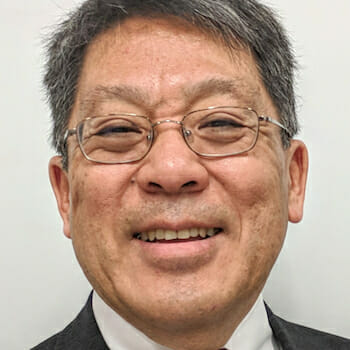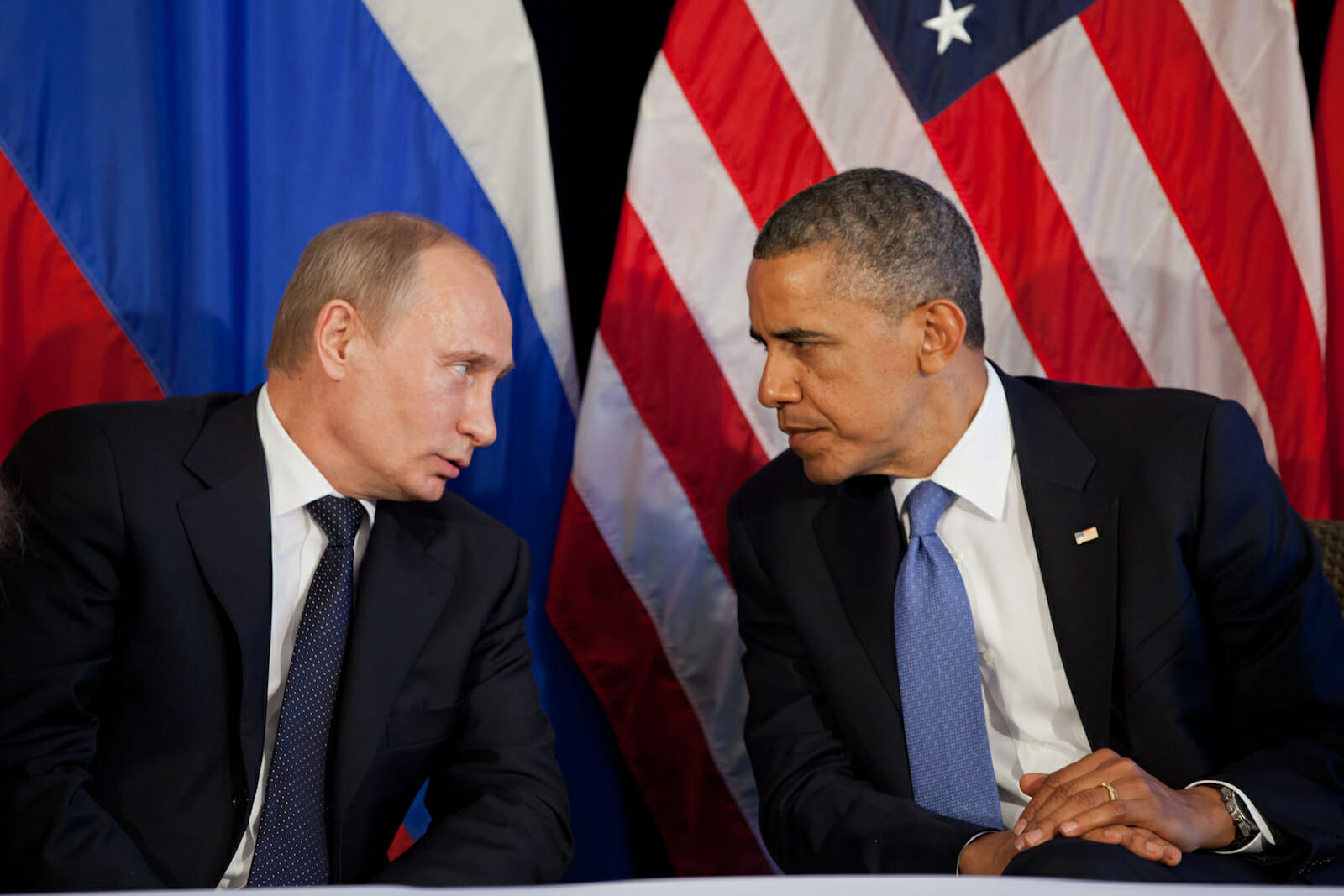
The Reality of the American Ideal, A New Diplomatic Service as 21st Century Steward
At a time when America’s institutions need deep reform or revival, our long-polarized public discourse is taking on a frenzied tone. The world is generating new challenges to American influence, new disruptions to American society, and new developments that erode the norms we live by, yet our politicians are more afraid of partisan defeat. America remains rich and powerful, but dysfunction and distrust leave many Americans doubtful that we can reverse ongoing deterioration or withstand the next disaster.
National confidence requires coherent consensus on clear convictions. America has its convictions: our Declaration of Independence founded the nation on principles, of unalienable universal rights, and government charged to secure them. The questions are: do we observe this founding creed? Together? Do our actions show that? And will it work?
Any creed must be convincing; against the doubts of a new age, this essay offers a fresh case for America’s. A creed must also make a difference in tangible matters. While America knowing itself is crucial to counter today’s disruptions, self-awareness alone will not sustain us. Institutions need new frameworks to align competencies with creed, so we see action following our principles. Foreign policy shows a nation’s character; its framework starts with national identity, which is defined for the U.S. by the Declaration’s creed.
U.S. foreign policy was once aimed at the sources of Soviet conduct. Now it must cohere around the fount of American nationality. This essay recommends forming U.S. diplomats as experts in the creed’s terms and implications, to re-base national conduct on that core of America’s national interest.
America’s Founding and National Interest
The American nation created itself by declaring its independence. The Declaration introduced our national entity as a distinct “people,” holding certain “self evident” truths. No other basis for the nation was offered. Only separate colonies existed before independence, and the rest of the document’s argument merely lists British transgressions.
The Declaration defines America. It precedes the Constitution, in which “we the people,” the sovereign introduced in the Declaration, promulgated America’s second state, succeeding the Articles of Confederation. The Constitution fulfills the Declaration’s specified purpose for government, to “secure the blessings of liberty.” It is essential institutional edifice, but the Declaration’s creed is America’s national foundation.
We forget how revolutionary the Declaration is. The signers divorced their ethnic motherland in favor of principle. Citing inherent rights, they upended the accepted view of rights as privileges granted by rulers. Independence was not only escape from a particular regime: it enacted a new standard for sovereignty, based on individuals’ right to live by their own lights.
We habitually neglect this revolutionary standard. Two political factions, Republican, Democrat, left and right, monopolize public discourse and dismember our universal tenets into partisan slants, liberals staking claims for their “grass roots” constituents, conservatives decrying the “liberal establishment’s” usurpations. But the creed itself names our national purpose. Politics should follow, not manipulate, its meaning.
Is this creedal foundation a myth? No history tells a pure story, but we have repeatedly reaffirmed our commitment to rights. The Declaration itself broadened the idea of rights, as it dropped Locke’s references to “property.” The Revolution disenfranchised traditional colonial elites. Fitful but recurring developments — expansion that broadened landownership, abolition, broad industrial prosperity, women’s suffrage, wars against totalitarianism, civil rights movements — all comport with the creed.
The post-modern age poses new choices and dangers that overflow our frames of reference. Our pursuits, from online enterprises to discoveries about the universe, alter familiar psychic horizons. New technologies, and new voices using them, disrupt life. America is historically a nation of doers disinclined to dwell on doubts, and we carry our creed implicitly. But today’s accelerating disorientation shakes assumptions and saps confidence. Fulfilling our founding now demands explicit, unified, embrace of its creed.
Foreign Policy
A nation’s foreign policy portrays its nature to the world. Re-shaping that institutional arena to the founding creed will help remind Americans of our essence.
During the Cold War, Containment ordered foreign policy, opposing the Soviets and embodying America’s “own best traditions.” We defeated an existential threat, in part because of our values. Nearly every action on every issue, worldwide, supported this goal.
Today, without Containment’s independent guidance, politics and crises set policy.
New administrations name new doctrines, “Global War on Terror,” counterinsurgency, “Washington Consensus,” democratization, and “Reset” with Russia. Addressing international issues from political postures, we have pushed gender equality in Central Asia, accorded “most favored nation” trade status to China, funded vaccinations in Africa, and impeded generic drug production in Brazil. We advocate democracy for Ukraine while supporting military rule in Egypt and Communists in Vietnam. Strategic formulas are “lists of…desirable goals,” not coherent approaches. Attempts to reorganize foreign policy institutions are similarly diffuse; no arrangement of boxes, arrows and budgets can endure without consistent orientation. Inconsistency in U.S. policy leaves it to others to interpret America’s motives. Many see our professions of values as hypocrisy, and our actions as evidence that our real interest is in keeping power and indulging our appetites.
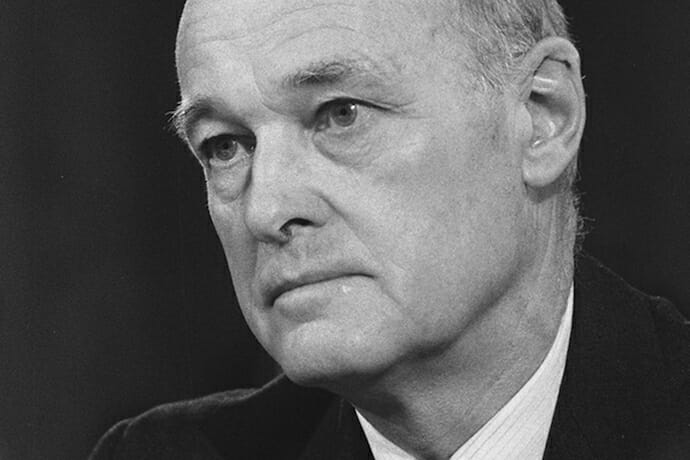
U.S. foreign policy needs overarching guidance: “not a goal…not even a plan…[but] a coherent approach to defining and solving a particular problem, in which the different elements have to work together.” This is true strategy. Cobbling together expert analyses of countries and issues will only yield those lists of objectives, which will continue to be whipsawed by politics’ shifting priorities. Strategy starts by naming a conceptual kernel, the core problem to be solved. Solutions to specific issues will fit together naturally around a clear central purpose. That purpose, our strategic mission today, is no longer to defeat an enemy but more generic, to nurture rights and exhibit our commitment.
Richard Haass notes that foreign policy starts at home. America’s home rests on the Declaration, and loses legitimacy if we fail to protect our people, who carry its creed, or neglect its commitment to rights. Orienting policy to the Declaration’s creed differs from using it as “soft power,” a weapon in a war for influence. Soft power is China using its economic sway for tangible ends, for instance in its “Belt and Road” initiative. So is Russia mounting its media campaigns, and ISIS its online agitations. U.S. policy needs to take the Declaration’s creed as guidance and accept sacrifices, risks, and costs for its sake. Treating the creed as a tool rather than a commitment surrenders the point of America’s existence.
The Creed
Projecting America’s creed requires fluency with its concepts, which are not easy. Its words are simple, but lead to problematic issues. A few corollaries lay them out, and an approach.
As a first corollary, and contrary to a common criticism, our creed is moral. Its morality lies in our deference to people’s pursuits. This can seem like mere license: “Life, liberty, and the pursuit of happiness” leaves “happiness” undefined, which permits misguided, even evil, motives. Critics say rights must be balanced by morality and order. But the idea of counterbalance reflects a misunderstanding. The Declaration also calls for government to secure rights. Civil order is interwoven with rights, and not some external counterweight to a licentious freedom. The more possibilities I see for my quests, the greater my interest in society’s protection for all; ours is an integrated self-interest, of the “Golden Rule.” This civic morality is separate from questions of ultimate truth and right. But the creed is moral.
In a second corollary, our creed is abstract and easy to misconstrue. Detractors call it meaningless without its own ordained moral truth, or delusional in deferring to people choosing the “happiness” they pursue. Backed by much of history, they see humans creating chaos unless given sanctified direction, from church, ethnicity, or tradition. Such psychic binders, and the regimes they animate, provided millenia of order and security.
But those regimes rest on their own particular sanctities; Inuit cannot follow Punjabi mores. Our creed prescribes no ultimate truths. This self-limitation allows it to provide common ground to persons of any ethnic and cultural origins, and mystics and scientists alike. It can digest new development and social upheaval. In 1776 we rejected Britain for transgressing it; four score and seven years later Lincoln re-voiced it for a war to end slavery; eighty years after that, FDR’s “Four Freedoms” invoked it against fascism. Its tenets have been embraced since 1945 in Germany, Japan, Spain, South Korea, and the Czech Republic.
Counterexamples to abstract tenets are easily found. Critics say we repeatedly violate our creed, starting with the signers of the Declaration who owned slaves. But only by human endeavor is living flesh put on principle’s bones, and whether we have is a judgment call, not a black-or-white answer. In that light, our 89-year path to the 13th Amendment might constitute validating progress, albeit slow and certainly incomplete. The real question is whether America keeps up what philosopher Amartya Sen calls “expansion of the ‘capability’ of persons to live the kind of life they value.” Sen calls this “development as freedom,” and its essence is in the expansion. Expansion alleviates “unfreedoms,” the limits on choice imposed by fear and want. Snapshot contradictions always exist, but our founding remains valid if people’s capacity to live as they choose keeps growing.
Third, our creed defers to individual choices, out of belief in free will. There is room for doubt. Experiments run in the 1970s suggested that humans set actions in motion neurologically before choosing them consciously. However, theorists who note the power of unconscious dispositions also allow that people can alter them. Further, human impulses include anomalies and outliers that deterministic models do not explain. Questions of free will may not admit of proof or disproof — people observing people cannot make objective findings. An analysis of quantum mechanics even suggests that subjective experience is the only certainty; another person’s free will may or may not exist, as Schrodinger’s cat may be dead or alive. I feel my own, and my choice to believe in another’s is plausible. But it cannot be objectively proven or disproven; America’s creed rests on an article of faith.
This faith is not necessarily religious. John Locke did conceive his idea of rights in the belief that worship had to be free to be meaningful, but whatever drives people, we see them as more than selfish survival machines. Humans are souls with that “something more;” their rights serve more than tangible self interests.
Others dispute this “more,” and dismiss our faith on ages of evidence of humanity’s craven nature. But no logic makes that outlook eternally true. Today, a billion people don’t give food, shelter, social order, even democracy, a second thought, and many work to build a “good life“ by their own lights.
This progression shows that people will, when they can, shift their energies from material survival toward “a broader and fuller picture of success and deprivation.” This freedom is not a license granted by prosperity. Rather, Sen’s development as freedom unfetters what humanity’s historical poverty had repressed: a natural drive to conceive and follow our inspirations. Psychologist Abraham Maslow calls it “self-actualization,” others say “flourishing.” Self-actualization completes what Maslow terms “full humanness” — as opposed to an incompleteness he detected at the heart of neurosis or psychosis. A definition of mental health is a description of human nature, and in full humanness the healthy person pursues what looks like the Declaration’s “happiness.” We espouse free will on faith, but examinations such as Maslow’s and Sen’s show it reasonable to hold.
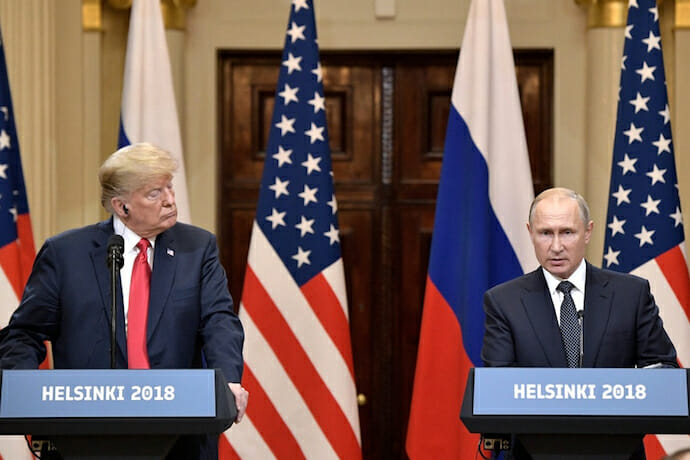
Still, a fourth point, free pursuits bring change, and at times dysfunction. To Americans this is development, which doesn’t stop even in “developed” societies, and includes free people repairing the dysfunctions. Traditionalist critics insist that people do not transcend their animal nature, and they cannot be disproven. America can only validate our creed, and must, by showing that people grow when untied from the constraints of the past.
The untying raises a challenge. The right to pursue our own happiness opens new vistas, and we have our civic morality. But people need terms on which to engage ultimate questions, and church and scripture offer guidance, and sanctity of tradition. Our creed does not renounce tradition, leaving people to decide how to pursue answers. But even for Americans who take spiritual fulfillment from established creeds, it’s different. As free people we choose our faith, which can be stronger for those who choose actively. But choice is the act of a mere mortal.
Our founding leaves us standing entirely on abstract principle. Even cultures as close to ours as Britain’s, Canada’s, or Australia’s can still view rights as traditional heritage. Briton, Aussie, or Canadian — the latter two never rejected the mother country — can trace rights’ and responsibilities’ progress as a cultural legacy dating from the Magna Carta. This means, by cold logic, that they can abridge their commitment to rights if they find better bases for what Victorians called “civility.” America rejected the cultural vessel, so we have no alternative to our abstract principle, and no ancient legacy to back it.
Perhaps we must adapt to this untethered principle, or perhaps we can build new traditions on our 250 years of national history. Either way, where traditionalist ideologies offer the solidarity of shared histories, our creed’s benefits, including unfreedoms’ continuing decline, must unfold with the future. Our founding, reasonable as it is, will need recurring validation from our conduct. We stand on perpetual trial.
Transmission: Grand Strategy and Narrative
The trial sets the shape of U.S. strategy. In the Cold War, the Soviets waged a global struggle for their ideology to prevail. Containment validated our creed against that threat. Today our test is to keep faith with our founding.
We will have external adversaries. The Declaration makes no call to destabilize others, but criticism of illiberal regimes, democracy promotion, even our Liberal World Order, can undermine traditional societies. Many carry a “Realist” worldview, which has a self-fulfilling logic: international life is a zero-sum game, so even cultural exchange could threaten their existence. Trying to defeat or convert them only makes their point. America must not stumble into that logic. Using our creed as a tool to overcome foes will only draw Realist counterattacks, bog us down in Realist contests, and pull us away from our own purpose. When principle does not allow us to avoid conflict, though, we must win, in a manner that keeps our focus on rights and freedom.
Strategist John Boyd distilled a formula from Sun Tzu: “…hold the moral high ground…tighten our alliances, pump up our resolve, drain away our adversary’s resolve, and attract the uncommitted.” Sun Tzu aimed to win wars without a shot by sapping adversaries’ resolve to fight. Projecting our creed can pre-empt anyone’s resolve to be adversaries at all.
The Declaration’s creed puts us on moral high ground — no one openly opposes us without opposing rights. Hostile regimes, even on social media, only pursue tangible interests of their specific ethnic, religious, or traditional constituents. Our abstract creed, in contrast, tells every individual that their rights come first. Defining our purpose by it boosts our resolve in our values, and makes amity with us attractive.
During the Cold War Soviet geopolitical power made national security our dominant concern. Today geopolitical security is part of a more diffuse challenge, and no longer subsumes all of foreign policy. Narrative — words that explain our stances and actions that corroborate them — becomes more consequential. Amid today’s new communications, it becomes part of “strategic depth,” alongside wealth, arms, geography, culture, and institutional sway. Hostile narratives incite suicide bombers and hackers; if America’s narrative inspires people to value freedom we keep our moral high ground.
Keeping this high ground is America’s strategic challenge. Our policies and actions must cohere around our narrative. Coherence is more important than any given policy: our purpose can be fulfilled along many paths, more or less isolationist, forward or passive in military posture, liberal or mercantilist on trade. Policy experts, in discourse with politicians, can work through the alternatives — the creed does not dictate answers or choose sides. Rather, our creed offers experts a bedrock criterion on which to analyze their issues, and shapes policy to politics under the same bedrock tenets.
A few thought experiments illustrate some ways that policy might carry our narrative.
A new approach to China could improve our policy consistency. For decades China policy has been embodied by the oxymoronic term “frenemy.” Our priorities careen between human rights, economics, and geopolitics. China can always justify aggressive geopolitics toward us, as we might always careen to geopolitical enmity, but need never take our concern for rights to heart, as we always careen back to economics. In contrast, our creed forms a single criterion that subsumes security, human rights, and economic matters. By it, we can devise a single measure of relations at, say, “3 out of 10.” We will note the Chinese people’s rising welfare and fitfully growing freedom, and our shared interests — but also limits to friendship in China’s rising repression, including schemes such as the nascent “social credit” system, and their territorial encroachments. But we would leave China to choose closer or cooler relations. In this candid but respectful stance we assert our values while reducing their need for adversarial resolve; if they retain it, we stand warned.
We could clarify our essence by re-configuring our alliances. Current arrangements orient NATO against Russia and the U.S.-Japan alliance against China, and leave questions whether, say, Saudi Arabia stands on a par with Canada. NATO, the U.S.-Japan alliance, ANZUS and the US-South Korea pact largely comprise countries that value individual rights as we do. If the U.S. works to pull them, and the other committed democracies, into a single defense community, we re-define security in terms of what we want it for. We focus pro-actively on societies firmly committed to rights, and the commons connecting them, not reactively against whomever we see as distasteful. This defense community concentrates free societies’ military strength, to make war against us daunting — and against freedom itself.
This base arrangement would allow further demonstration of our nature. The community should deepen relations with non-members who deepen their commitment to rights and democracy, perhaps Ghana, India or Brazil. Eventually we might offer them membership. Conversely, we should review the status of rights in current allies, perhaps to exclude, for example, Turkey. Neutral or ambivalent nations we might treat on lines of the hypothetical China stance, asserting our values while damping adversarial tensions.
These are speculations; many ideas could work, of many ideological stripes. But they illustrate measures that could infuse Realist logic with the Declaration’s creed, and show that orientation to our tenets can be practical.
Transmission: Diplomacy and Policy Process
A proposal such as this is incomplete without suggestions for implementation. The key to projecting our narrative is not facility with platforms or propaganda, but coherent conduct under our creed. Shaping that conduct will take expertise in the creed’s full meaning, as deep as the military’s in armed force. This requires an analogous profession, of institutional stewards for the spirit of our founding, to orient policy to core national interest.
The traditional bearer of such a charge is the diplomat. The venerable image is of personal envoy of personal sovereign, promoting the latter’s interest to other kings. Today, where kings defined nations’ interests by personal desire, our creed sets America’s. A U.S. diplomatic service that knows the Declaration’s creed, as the old world diplomat knew his master, would perform that job for our sovereign of principle.
The media generally cite diplomacy when military action and economic sanctions will not work. Public perception, as a result, is that it means concession or compromise. When not viewed as a veil for surrender, diplomacy is seen as a support function, easing military or economic action. Historically, though, the diplomat’s mere physical presence at court made his sovereign’s interests a norm in the host king’s worldview. This ambient function was diplomacy’s first mission. In this function the diplomat pre-figures the point that any economic or military measure might serve. Such before-the-fact connection of our actions to America’s narrative is U.S. diplomacy’s first purpose.
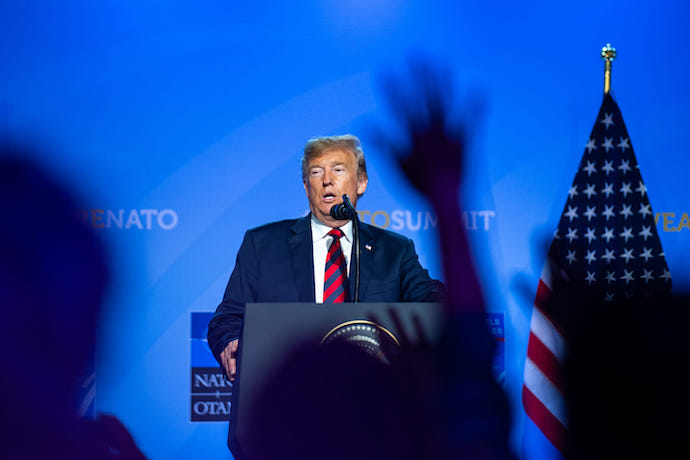
Foreign Service Officers have come to define their work by action items. The need for boxes to check pulls the service into support roles for other agencies’ “real” action. As a result they follow, more than they counsel, partisan politics. We treat other countries as generators of “to do” lists: threats to counter, program partners, or societies to democratize. This portrays the U.S. “imposing democracy,” or caring more about a country’s patent laws than human rights. Success in the ambient function requires considered, independent analysis, which avoids these misunderstandings. It also helps diplomats, expert in our creed, to spot and respond to budding new issues.
Any re-conceived diplomatic profession must, obviously, follow civilian rule, constrained only by the Constitution. The Constitution follows the creed; properly understood, our creed-based doctrine could never contravene it. A diplomatic service steeped in the Declaration’s creed would reconcile governing authority with fundamental national interest, much as a royal counselor might have for a young monarch. More mundanely, diplomats always have to interpret mandates in order to execute them, in matters that top officials leave unaddressed. Our narrative’s discipline supplants personal views and bureaucratic interest in those interpretations.
The federal government’s interagency process has been its mechanism to address the diverse concerns and interests that always play off of each other. The State Department has a seat in that process, but over several decades has fallen into the role of “other countries’ voice.” The re-formed diplomatic service brings a voice for our creed to this roundtable of interests. State would become “America’s Desk,” carrier of our founding creed and core national interest.
Training Diplomats
Diplomats fluent in America’s creed are the lynchpin to this proposal. Building a profession of stewards for our creed will take new formative training. Historically, Foreign Service Officers get a multi-week orientation, supplemented by modules tailored to upcoming assignments, and language training. Through their careers they build myriad threads of expertise, on water rights in Jordan, land reform in Latin America, and nuclear arms control, all held by successions of particular officers in particular posts. But after orientation, the service gives diplomats no common frame of reference. New training should endow diplomats with shared professional expertise, in the art of applying America’s creed.
The nature of the Declaration precludes indoctrination. The new U.S. diplomat must digest its philosophy in intellectual and personal exploration. Debate and discussion, imparting fluency rather than formulas, best cements full understanding. Trainees, as Americans, can be expected to embrace the creed as they explore. Thoughtful grasp of the creed will also instill humility: diplomats will see that expertise serves, and gives no grounds to judge, people’s free pursuits. Humility will also enforce civilian authority over policy. But fluency in our creed will make the service America’s authority on our national interest.
To apply our creed to tangible issues, diplomats must know international relations, from Realpolitik to Millennium Development Goals. They need to master methods to project a narrative, online, at diplomatic functions, and in the street, which entails cultural skills. They must understand military affairs, media, the environment, economics, intelligence, and comparative religion. Diplomats will still gain specialized capacities through their careers but will share a common base.
Training must ensure that this official corps of thinkers applies our creed of rights to serve a nation of doers. Most Americans hold our creed, by right, without reflection, absorbed in their own pursuits. Diplomats’ intellectual focus risks alienation from that body politic. To serve America credibly, their commitment must not be to mythical images; they must know the people they serve, perhaps through immersions in domestic settings.
The overall process must foster an institutional culture. The mass of material calls for a multi-term program. The course should integrate studies, debate, cases, and simulations. To ferment esprit de corps, it should be based at a dedicated campus, to induce intensive interaction among trainees. The goal is to produce a collegial agent for U.S. policy coherence, not star diplomats. The process should especially test candidates’ desire to take this role; “wash-outs” should be the individuals for whom the role is not worth the stress.
Organizational moves are also needed to re-cast a U.S. diplomatic service for this role. But it will make “America’s Desk” a trusted national voice. Just as we know the military protects us, diplomats can assure Americans that our founding tenets shape national conduct.
Aspirations
If Americans see serious matters following our creed, public discourse will take better stock of our fundamental purpose. The fear raised by today’s disruptions is that the norms and beliefs by which we live might wash away. But beneath today’s upheavals, dysfunctional politics and creaking institutions, Americans have the Declaration’s creed as bedrock. America created itself as a vessel for the idea of unalienable rights. This sets the nation’s enduring purpose — and perpetual test. When we see the test we can meet it; if we keep meeting it we ensure America’s survival. America’s endurance promotes every human’s right to live as they choose. Life can become ever less an ordeal of survival, and more a pursuit of meaning. This is a worthy end for the leadership that Kennan saw history intending America to bear. History’s intent may be murky now, but America’s conception as bearer of our creed remains clear, if we look.
